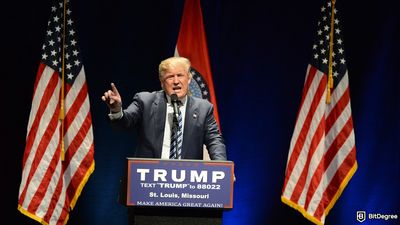A recent scandal has erupted within the cryptocurrency community, putting crypto trading instructor under legal scrutiny for scamming their students.
Brian Sewell, the man behind the alleged scheme and the founder of Rockwell Capital Management, reportedly convinced his followers to invest their money into a nonexistent hedge fund between the beginning of 2018 and the middle of 2019.

Did you know?
Want to get smarter & wealthier with crypto?
Subscribe - We publish new crypto explainer videos every week!
What is Terra Luna? History & Crash Explained (ANIMATED)


The US Securities and Exchange Commission (SEC) has reported that Sewell, who had lived in Hurricane, Utah before moving to Puerto Rico, accepted $1.2 million from students. Unfortunately, he neither created the promised fund nor implemented the trading strategies he had advertised.
Contrary to his assurances of leveraging artificial intelligence (AI) and machine learning for maximizing investment returns, Sewell is said to have let the investors' funds sit inactive in Bitcoin (BTC).
This negligence culminated in a security breach where Sewell's digital wallet was hacked, leading to a total loss of the invested capital.
The SEC's complaint highlights this unfortunate event, indicating that the promised technological safeguards were either insufficient or never implemented.
This case has prompted the SEC to issue a stern reminder to the cryptocurrency market about the consequences of fraudulent activities.
The commission has made it clear that it remains vigilant and ready to take action against those who misuse the hype surrounding emerging technologies.
Whether it’s AI, crypto, DeFi or some other buzzword, the SEC will continue to hold accountable those who claim to use attention-grabbing technologies to attract and defraud investors.
In an effort to amend the situation, Rockwell Capital Management has consented to refund the lost $1.2 million to the defrauded investors, along with an additional $402,000 in prejudgment interest. Furthermore, pending court approval of the settlement, Sewell will be required to pay a civil fine amounting to $223,229.
This case serves as a cautionary tale for the crypto community, highlighting the risks of fraudulent investment schemes and underscoring the importance of regulatory oversight to protect investors.






















